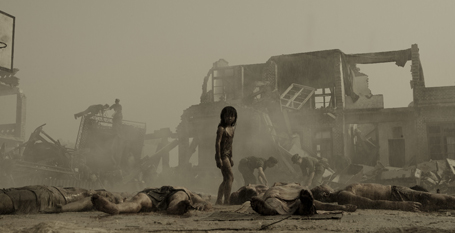
A pair of dizygotic twins survive the Great Earthquake of Tangshan in 1976 but are separated. The girl is adopted by a loving couple from the Red Guards’ earthquake relief team but is tormented by nightmares of her missing family. Her surviving brother and mother remain in Tangshan, haunted by the guilt that they saved themselves by deliberately leaving the sister behind.
How will they live out the rest of their natural lives? Feng’s parallel narrative drops in on both families every 5 to 10 years and what comes through to us is the natural resilience of the Chinese people, who have the wondrous capacity to survive through anything and everything. They survive through the Cultural Revolution, which ended before the film begins; the interregnum and political purges of the Gang of Four, which the film skips over after recounting Mao’s funeral; and the Tiananmen Square Massacre, which Feng wisely leaves unmentioned in his time hopping narrative. In a way, it’s the highest level of storytelling: the Chinese survived through all these incidents – no need to enact them already since they can’t hold a candle to the destructiveness of any earthquake.
And yet, our protagonists survive. Not only that but they rise from abject poverty to become middle class and even nouveau riche and face the problems of the middle class and nouveau riche. The daughter must decide whether to emigrate. The son must decide how best to honour his mother, who is at turns manipulative and scornful of his attempts at filial piety. Feng works through these issues without the hysteria or cheap melodrama that Jack Neo and even Colin Goh insults us with.
While its budget is clearly modern, it appears that Feng’s new film is a glorious update of the Resilient Chinese genre that Chen Kaige and Zhang Yimou created before they were seduced by big film money. This time round, Feng outdoes the two masters of Chinese cinema at their own game.

